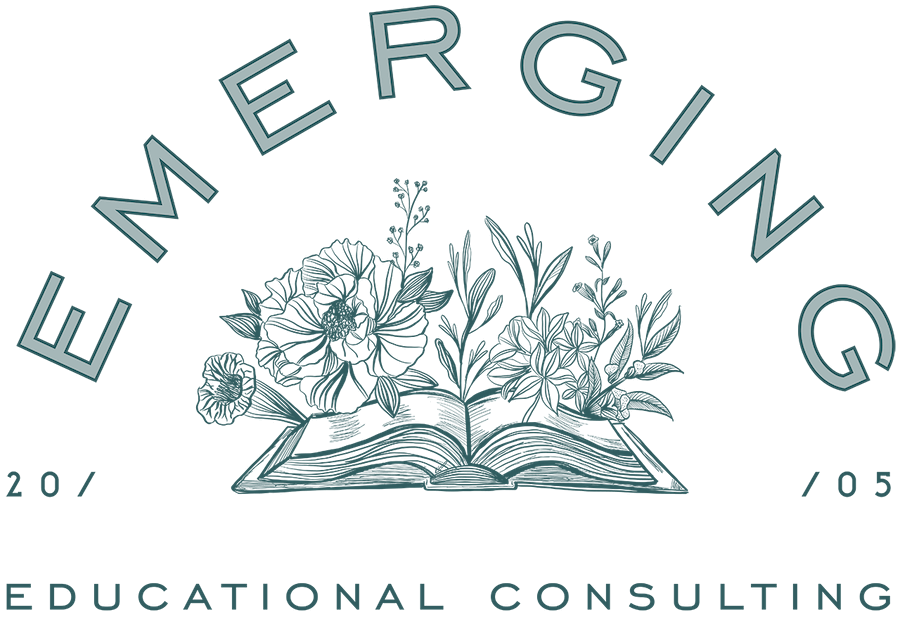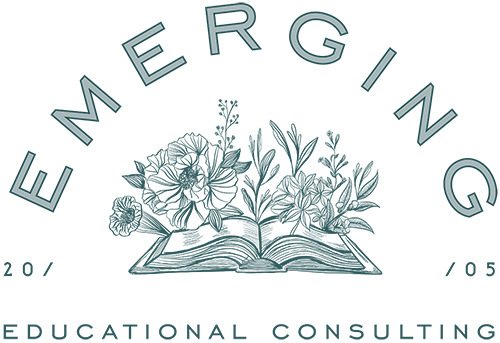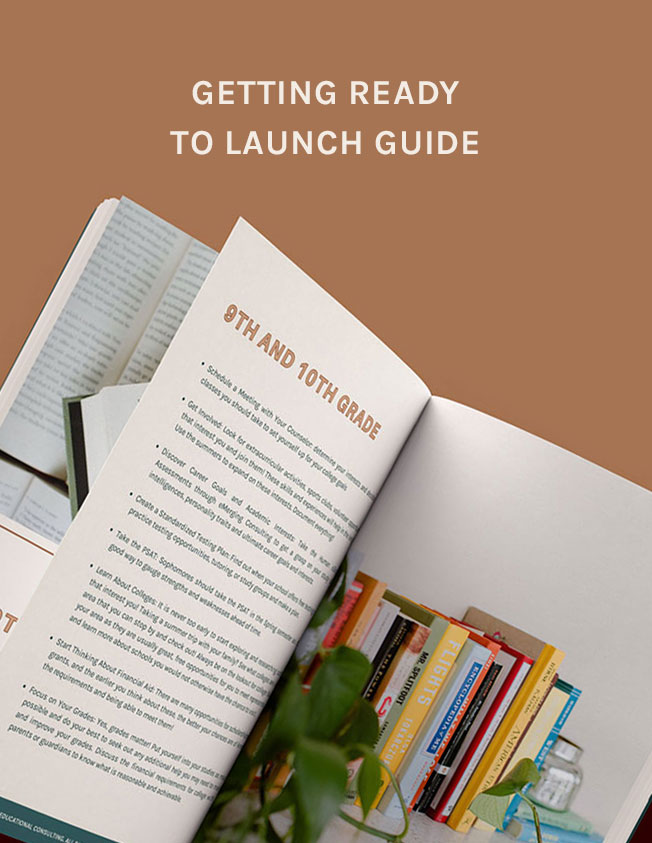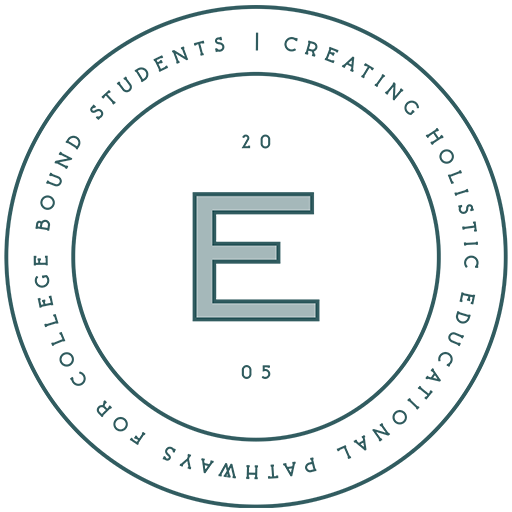Inspired by Lindsay Pollack and insights from Jeff Selingo’s “From College to Career” webinar
As students and families navigate decisions about majors, internships, and the ever-evolving world of work, one thing is clear: the path from college to career is no longer linear. It’s not about choosing the right major or chasing a dream job from day one. It’s about building momentum, developing future-ready skills, and staying open to pivots along the way.
At Emerging, we’ve long believed in this philosophy. That’s why every student we work with graduates from our process with a polished résumé, a confident story, and a LinkedIn profile that evolves with them. This recent webinar, featuring Lindsay Pollack (author of Getting from College to Career), Matt Sigelman (Burning Glass Institute), and Andy Chan (Wake Forest University), echoed everything we’re passionate about: thoughtful preparation, real-world experience, and adaptability in an AI-powered world.
Start Early—But Start Now If You Haven’t
The biggest mindset shift in the last decade? College is no longer just about getting in—it’s about getting ready. Career development doesn’t begin senior year; it starts as early as possible. But here’s the good news: if your student is already in college and hasn’t started, that’s okay.
Just begin. The earlier you plant the seeds, the more time you have to grow.
Career Momentum Through Micro-Steps
Rather than overwhelming students with a five-year plan, this framework promotes action through micro-steps. Think of it as a career-development habit loop. Just one thing a day:
- Visit the career center
- Watch a virtual internship panel
- Ask a professor about research opportunities
- Update a LinkedIn headline
These small actions compound into confidence and clarity.
Year-by-Year Career Planning Framework
First Year: Explore & Introduce Yourself
- Meet your career center team
- Attend info sessions (even if you’re unsure!)
- Join clubs, follow curiosity
- Ask: “What do your interns do here?”
Second Year: Focus
- Declare a major, but stay curious
- Build a résumé and LinkedIn profile
- Take on club or leadership roles
- Apply for job shadowing or internships
Third Year: Experience
- Land an internship
- Connect with alumni mentors
- Refine your career story
- Consider grad school, fellowships, or postgrad routes
Fourth Year: Launch
- Use momentum from past experiences
- Activate your network
- Leverage career services—mock interviews, job fairs
- Stay calm. You’re ready.
Takeaway: The students who thrive aren’t those who rush senior year. They’re the ones who started conversations, took micro-steps, and treated career development as a skill—not a scramble.
Does Your Major Matter?
Yes and no.
For fields like nursing or accounting, yes—your major provides credentials. But for the vast majority of careers, what you do with your major matters more than the title itself.
“You’re not married to your major,” said Andy Chan. “Your career will evolve—so should your mindset.”
- Lindsay Pollack emphasized storytelling: can you connect your major to your interests and goals?
- Matt Sigelman added that a major may open the first door, but it doesn’t define the hallway.
- Electives and minors often reveal passion and direction—especially when paired with credentials like coding bootcamps or certificates.
The Underrated Magic of Work-Based Learning
Here’s the strongest predictor of post-grad success:
It’s not prestige. It’s access to real-world experience.
- Internships, co-ops, job shadowing, part-time jobs—these are the launchpads.
- Colleges near job hubs outperform rural elite schools in job placement—because experience trumps name brand.
- Institutions must build employer relationships and prioritize these connections in the curriculum.
Replace “Networking” with Relationship-Building
Gen Z cringes at the word “networking.” And that’s okay. The better frame? Relationships.
- Start with a classmate: “Where are you interning this summer?”
- Use LinkedIn to reach alumni with similar paths
- Follow up with guest speakers—send a thank-you note or ask a question
Relationship-building is about curiosity and consistency, not coffee chats with strangers in suits.
AI: Not a Threat—A Tool for Creativity
AI is already transforming early-career jobs. Rather than fearing displacement, students should be taught to use AI tools to:
- Brainstorm
- Draft and iterate
- Learn new skills quickly
- Explore career possibilities
“Use ChatGPT to solve the blank page problem,” one speaker said. “Ask it for 50 career paths based on your interests.”
We’re already integrating AI tools into our curriculum, showing students how to enhance—not replace—their thinking.
Future-Proofing a 50-Year Career
Students today will navigate multiple careers—and reinvent themselves more than once. To thrive, they need:
- A strong personal story
- Real-world experience
- Comfort with ambiguity
- Curiosity and adaptability
- Digital literacy and relationship skills
A finance major may become a nonprofit founder. A biology student might move into product management. The key is starting, not perfecting.
What To Do Tomorrow
Andy Chan: Normalize uncertainty. Share your messy career path. It gives students permission to explore.
Matt Sigelman: Reverse-engineer your dream job by studying real job postings. What skills show up? Start building them.
Lindsay Pollack: Adults, model the behavior. Reactivate your alumni account. Mentor a student. Read Getting from College to Career.
For Students and Families
- Don’t panic if your major isn’t a perfect match
- Use electives and certificates to supplement skills
- Seek internships—it matters more than prestige
- Talk to people: peers, mentors, alumni
- Use AI as a creative partner, not a shortcut
For Educators and Colleges
- Embed career development into all four years
- Prioritize access to real-world learning
- Rethink “networking”—teach relationship-building
- Be transparent about job outcomes and evolving fields
RESOURCES:
- Ace Your Future: How AI is Revolutionizing Test Prep & College Admissions
- How (and Why) High Schoolers Should Get Involved in AI




